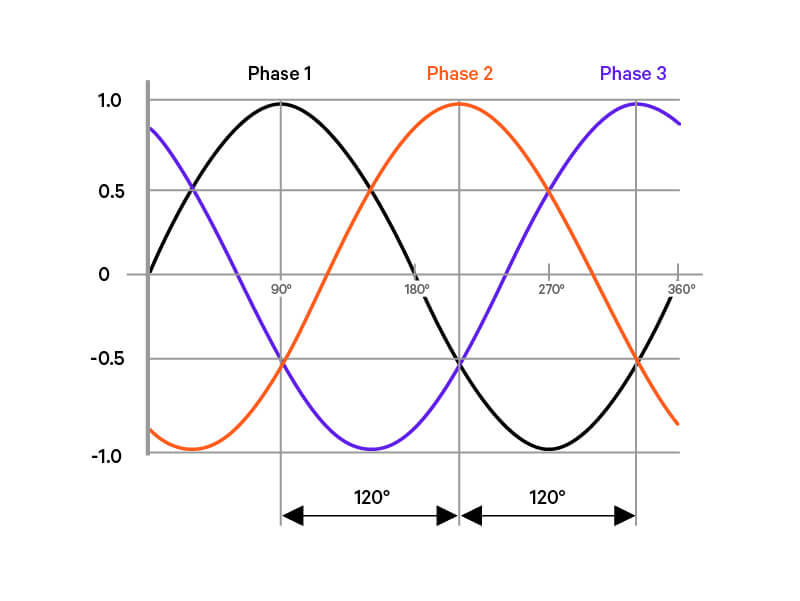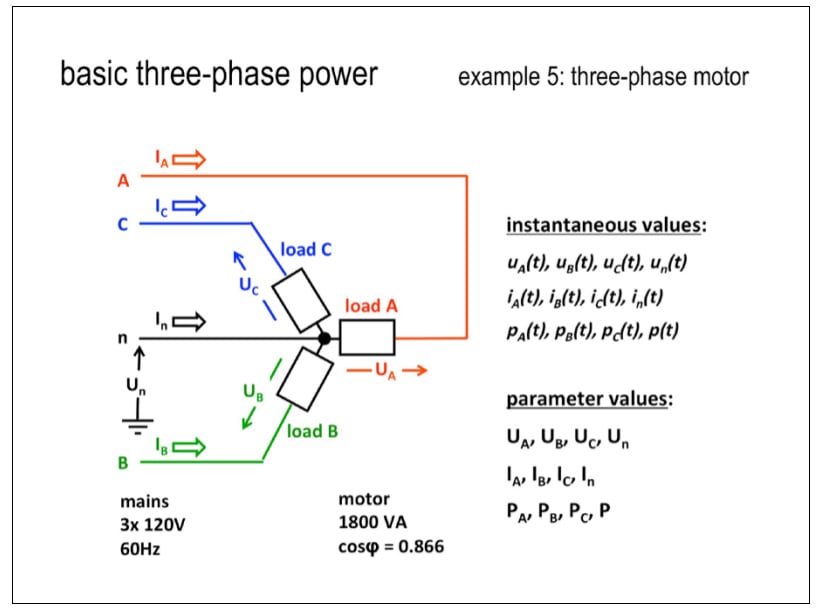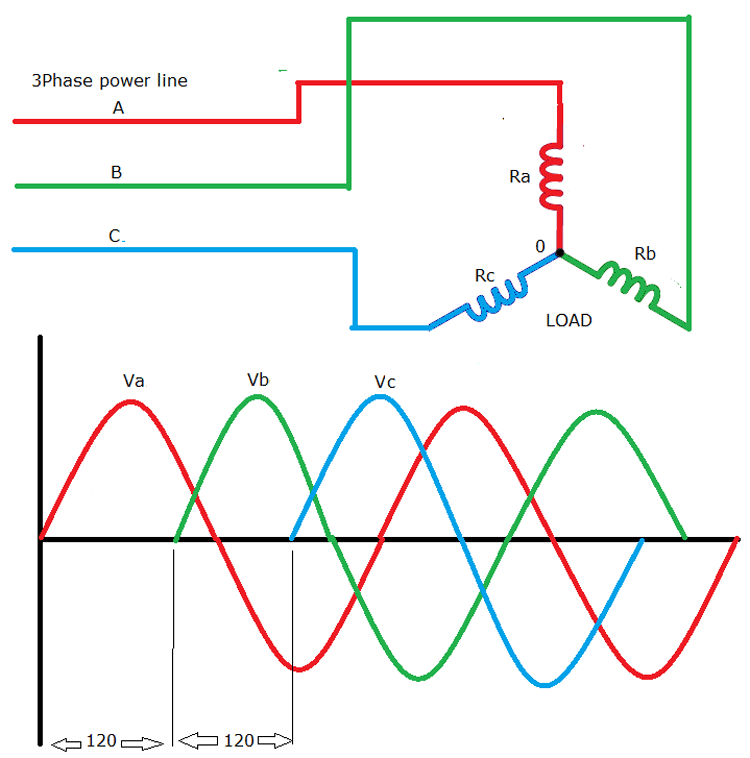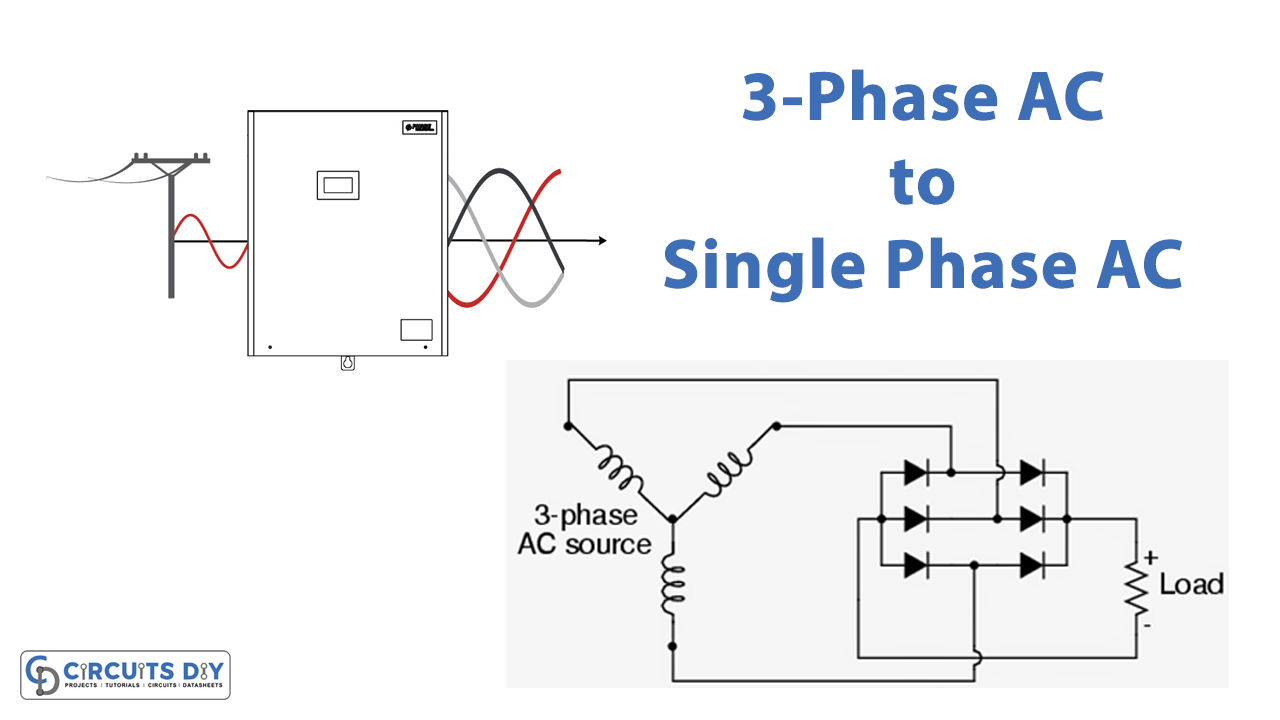Formidable Info About How Do I Know If My AC Is 3-phase

ELI5 My Home Has A 3 Phase Connection Of AC. What Does It Mean? R
Is Your AC a Powerhouse? Figuring Out if It's 3-Phase
1. What is 3-Phase Anyway?
Alright, let's talk AC. Specifically, the electrical guts of your air conditioning unit. You might be wondering, "Why should I care if it's single-phase or 3-phase?" Well, if you're dealing with a large cooling system, understanding this could save you a headache (and maybe some money) down the line. Think of it like this: single-phase is like a regular garden hose, while 3-phase is like having three garden hoses all spraying at once. More power!
So, what is 3-phase power? In simple terms, it's an electrical power distribution method that uses three alternating currents, each offset by 120 degrees. This results in a smoother, more efficient power delivery, particularly beneficial for high-power applications like industrial air conditioners. Single-phase, on the other hand, uses a single alternating current. It's perfectly fine for most household appliances, but when you start needing serious cooling oomph, 3-phase often steps in.
Now, don't get scared off by the technical jargon. We're not trying to turn you into an electrician overnight. But knowing the basics will help you communicate with professionals and understand what's going on behind the scenes. Imagine trying to explain to your mechanic that your car is "making a funny noise" without knowing anything about engines! It's the same principle here. A little knowledge goes a long way.
Think of your home outlets. They usually single phase, and can handle most of your typical home appliances. Now imagine a giant warehouse, or a multi-story office building. These places need a LOT more cooling power, and that's where 3-phase becomes essential for their AC systems. So, how do you figure out if your AC is 3-phase?

Clues to Uncovering Your AC's Electrical Secret
2. Hunting for the Obvious Signs
The easiest way to tell? Check the unit's nameplate. This is usually a metal or plastic tag attached to the outdoor condenser unit. Look for the words "3-Phase" or the symbol "3~". It might also list the voltage; 3-phase units often operate at higher voltages like 208V, 230V, or 480V, while single-phase units are typically 120V or 240V. Consider it like reading the nutritional facts on a food label but for your AC's power diet!
Still not sure? Take a peek at the breaker panel that feeds the AC unit. A 3-phase AC will often have a triple-pole breaker (meaning it takes up three slots in the panel), whereas a single-phase unit will usually have a double-pole breaker. It's like comparing a king-size bed to a twin bed — one takes up a lot more space!
Another clue is the wiring. 3-phase systems often have three hot wires plus a neutral and ground, whereas single-phase systems typically have two hot wires plus a neutral and ground. Do not attempt to disassemble or modify any electrical components yourself. This is definitely a job for a qualified electrician. We're detectives, not daredevils!
Finally, consider the size and type of AC unit you have. Small window units are almost always single-phase. Larger central air conditioners, especially those used in commercial or industrial settings, are more likely to be 3-phase. If you're cooling a small apartment, it's probably single-phase. If you're cooling a factory, it's definitely worth investigating further.

When in Doubt, Call the Pros
3. Why Electricians Are Your Best Friends
Okay, so you've checked the nameplate, peeked at the breaker panel (safely, of course!), and you're still not sure. That's perfectly fine! Electricity can be confusing, and messing around with it can be dangerous. This is where a qualified electrician comes in. They have the training, experience, and tools to safely and accurately determine whether your AC is 3-phase.
Think of it like this: you could try to diagnose your car's check engine light yourself using YouTube videos, but are you really going to trust yourself to fix it properly? Probably not. An electrician can do more than just identify the power type; they can also inspect the wiring, check for any potential problems, and ensure that everything is operating safely and efficiently.
Plus, if you're planning any electrical work, such as upgrading your AC unit or installing new circuits, knowing whether you have 3-phase power is crucial for proper planning and execution. Imagine trying to plug a European appliance into an American outlet without an adapter — sparks will fly! The same principle applies to AC units and electrical systems.
So, save yourself the potential headache and call a licensed electrician. It's an investment in your safety and the longevity of your AC system. They'll be able to give you a definitive answer and advise you on the best course of action. It's like having a professional chef in the kitchen, instead of relying on your questionable cooking skills!

How To Convert 3Phase AC Single Phase
Why Does It Even Matter?
4. The Benefits of Knowing Your AC's Phase
You might be thinking, "Okay, so now I know how to find out if my AC is 3-phase. But why should I care?" Good question! Knowing the power type of your AC unit can be beneficial for several reasons. First, it helps you understand your energy consumption. 3-phase systems are generally more efficient for high-power applications, which can translate to lower electricity bills in the long run (assuming your AC is appropriately sized and maintained).
Second, it's important for proper maintenance and repairs. When you call an HVAC technician for service, they need to know the power type of your AC unit to diagnose problems accurately and use the correct parts. Imagine trying to fix a diesel engine with gasoline parts — it's not going to work! Providing the right information upfront can save time, money, and frustration.
Third, knowing your AC's phase is crucial for safety. If you're planning any electrical work near the AC unit, or if you suspect a problem with the wiring, it's essential to be aware of the power type to avoid electrical shocks or fires. Electricity is like a wild animal — treat it with respect!
Finally, if you're considering upgrading or replacing your AC unit, understanding the power requirements is essential for choosing the right model and ensuring proper installation. You wouldn't want to buy a 3-phase AC unit and then discover that your building only has single-phase power, would you? That would be like buying a Ferrari and then realizing you only have a driver's license for a scooter!

Extra Tips & Tricks
5. Become an AC Power Detective!
Let's arm you with a few more tricks for identifying your AC's power type. Contact the previous homeowner, landlord, or building manager. They may already know the answer. Sometimes, the simplest solution is the best!
Consult the original building plans or electrical schematics. These documents should specify the electrical system's details, including the power type of major appliances like the AC unit. Finding these might be like embarking on a treasure hunt, but the reward is valuable information!
If you have a smart meter installed, it might display information about the power usage and phase. Check the meter's display or online portal for details. This is like having a secret decoder ring for your energy consumption!
Consider using a non-contact voltage tester to check the voltage at the AC unit's disconnect switch (again, only if you're comfortable and know what you're doing!). A 3-phase system will typically have three wires with voltage readings. But please, proceed with extreme caution or better yet, leave this to a professional.

Generation Of Three Phase AC Supply Emf System
FAQ
6. Get the Answers You Need
Still have questions about your AC's power phase? Here are some frequently asked questions to help clear things up:
Q: What happens if I connect a single-phase AC unit to a 3-phase power supply (or vice versa)?
A: It won't work, and you could damage the AC unit or the electrical system. The AC unit is designed to operate on a specific voltage and phase, and mismatching it can cause overheating, short circuits, or even fires. It's like trying to run a gasoline engine on diesel fuel — it's just not going to work!
Q: Is 3-phase power more expensive than single-phase power?
A: Not necessarily. 3-phase power is often more efficient for high-power applications, which can lead to lower energy bills. However, the cost of electricity also depends on your utility provider's rates and your overall energy consumption. It's like comparing the fuel efficiency of a truck and a car — the truck might use more fuel overall, but it can also haul a lot more cargo.
Q: Can I convert a single-phase AC unit to 3-phase, or vice versa?
A: Generally, no. AC units are designed to operate on a specific power type, and converting them is usually not feasible or cost-effective. It's better to replace the AC unit with one that matches your building's power supply. It's like trying to turn a bicycle into a motorcycle — it's just easier to buy a motorcycle!